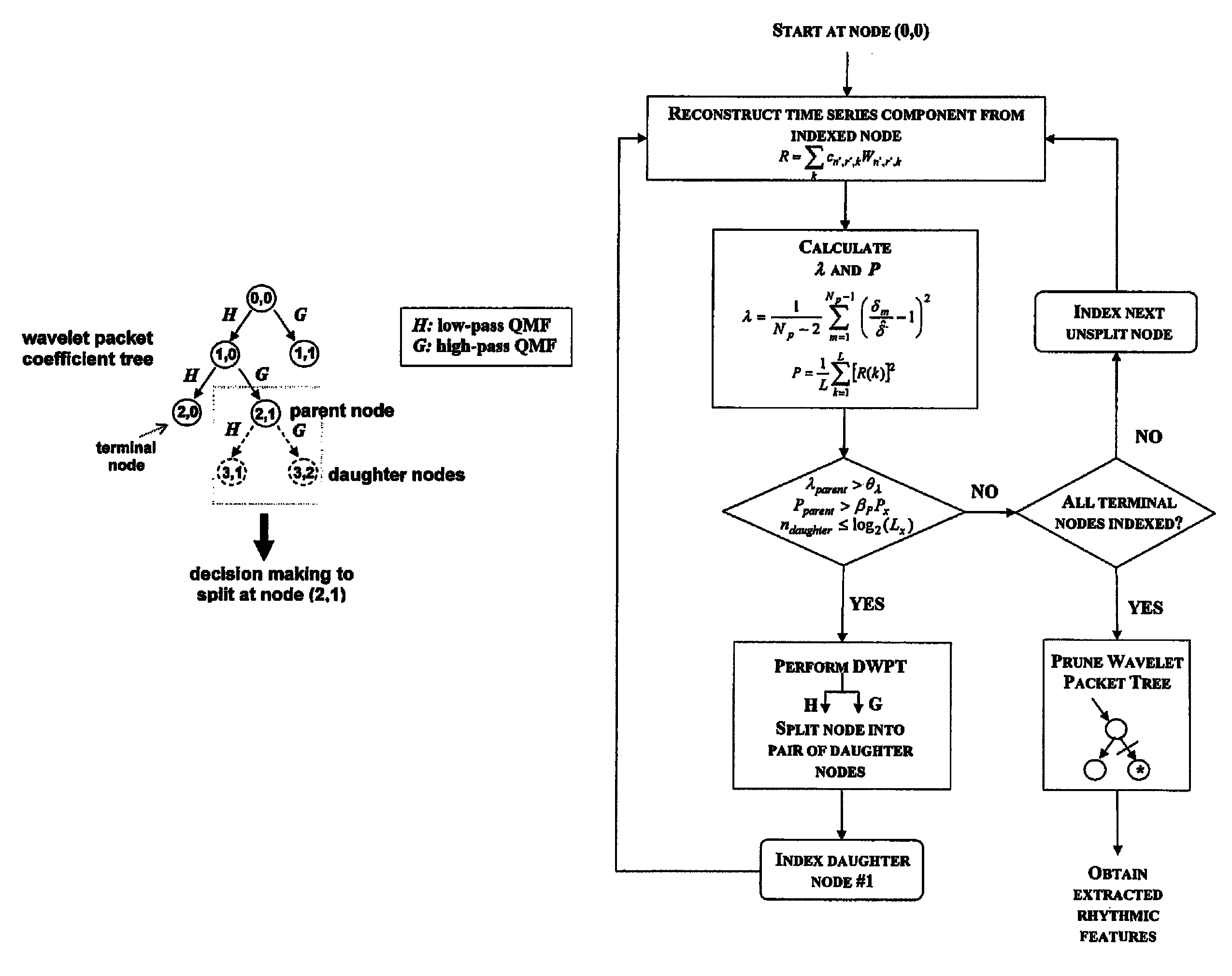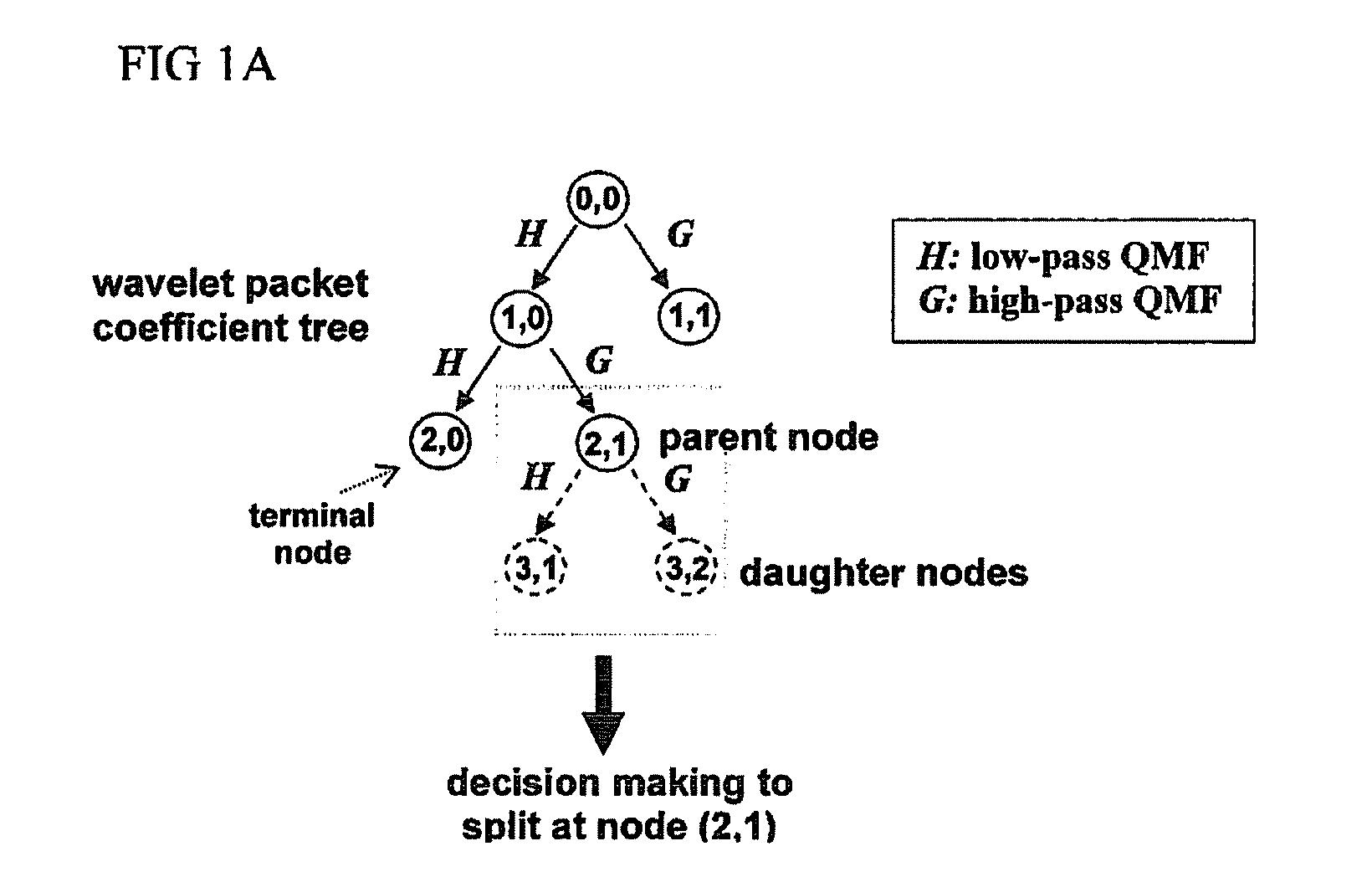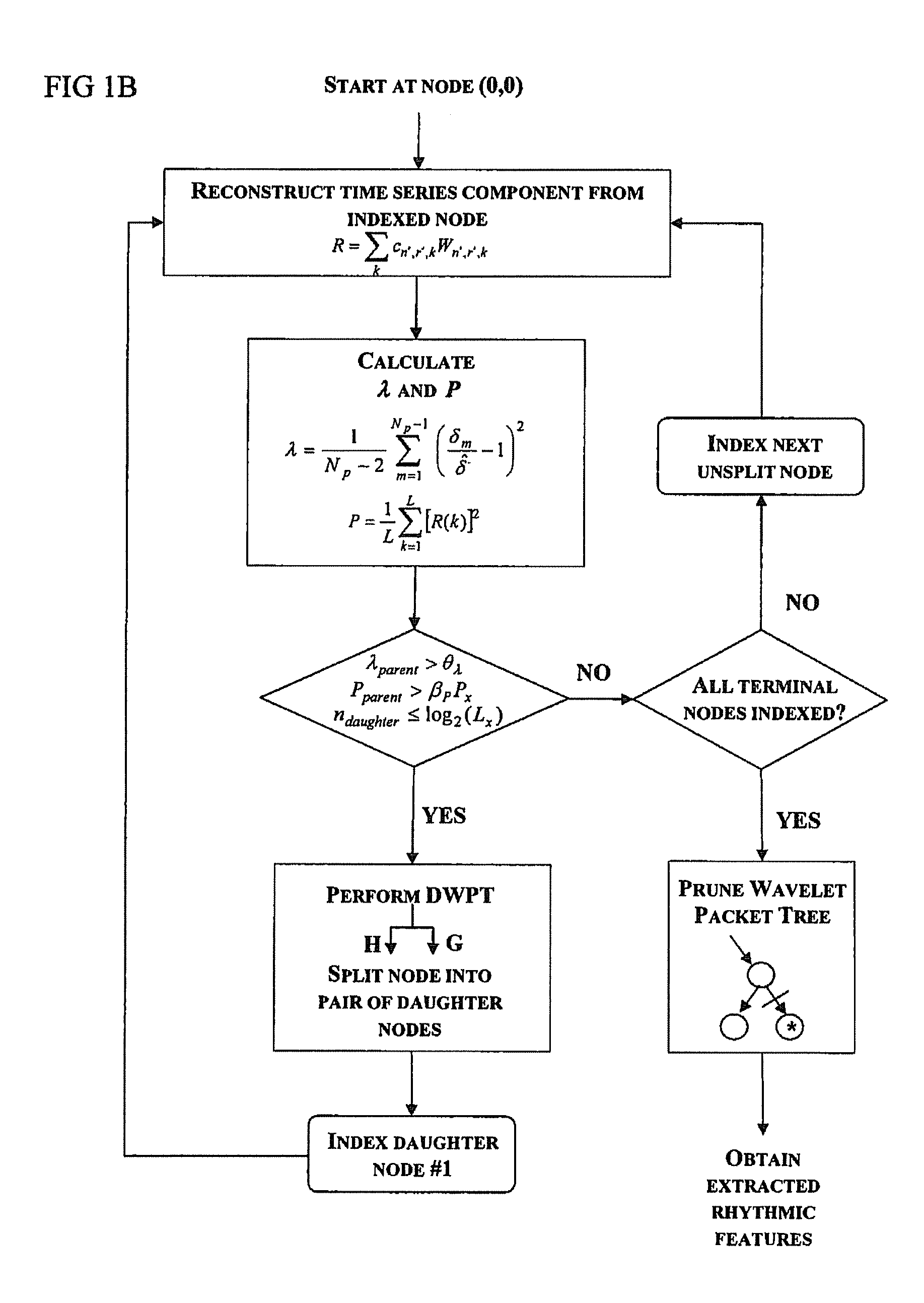Method and rhythm extractor for detecting and isolating rhythmic signal features from an input signal using the wavelet packet transform
a technology of rhythmic signal and wavelet packet transform, applied in the field of signal processing, can solve the problems of difficult detection and isolation, affecting the analysis of non-stationary signals, and presenting a considerable challenge to signal analysis,
- Summary
- Abstract
- Description
- Claims
- Application Information
AI Technical Summary
Benefits of technology
Problems solved by technology
Method used
Image
Examples
Embodiment Construction
[0062]In the following, a wavelet packet rhythm extraction (WPRE) method and rhythm extractor for carrying out the method is described that makes use of the discrete wavelet packet transform (DWPT) together with a threshold-based technique to automatically detect and isolate rhythmic signal features from input signals such as for example neural signal recordings. These isolated rhythmic signal features may then be independently reconstructed or combined into contiguous rhythms. The intended objective of the WPRE method therefore, is to extract and enable separation of rhythmic signal features so that they can be used in other signal processing-related applications such as detection, classification and tracking. The WPRE method is versatile because it can be applied to any input signal recorded from any source, whether it be an intracellular single-neuron recording or a recording of the integrated field-potentials of multiple neuronal populations.
[0063]Turning now to FIGS. 1A and 1B,...
PUM
 Login to View More
Login to View More Abstract
Description
Claims
Application Information
 Login to View More
Login to View More - R&D
- Intellectual Property
- Life Sciences
- Materials
- Tech Scout
- Unparalleled Data Quality
- Higher Quality Content
- 60% Fewer Hallucinations
Browse by: Latest US Patents, China's latest patents, Technical Efficacy Thesaurus, Application Domain, Technology Topic, Popular Technical Reports.
© 2025 PatSnap. All rights reserved.Legal|Privacy policy|Modern Slavery Act Transparency Statement|Sitemap|About US| Contact US: help@patsnap.com



